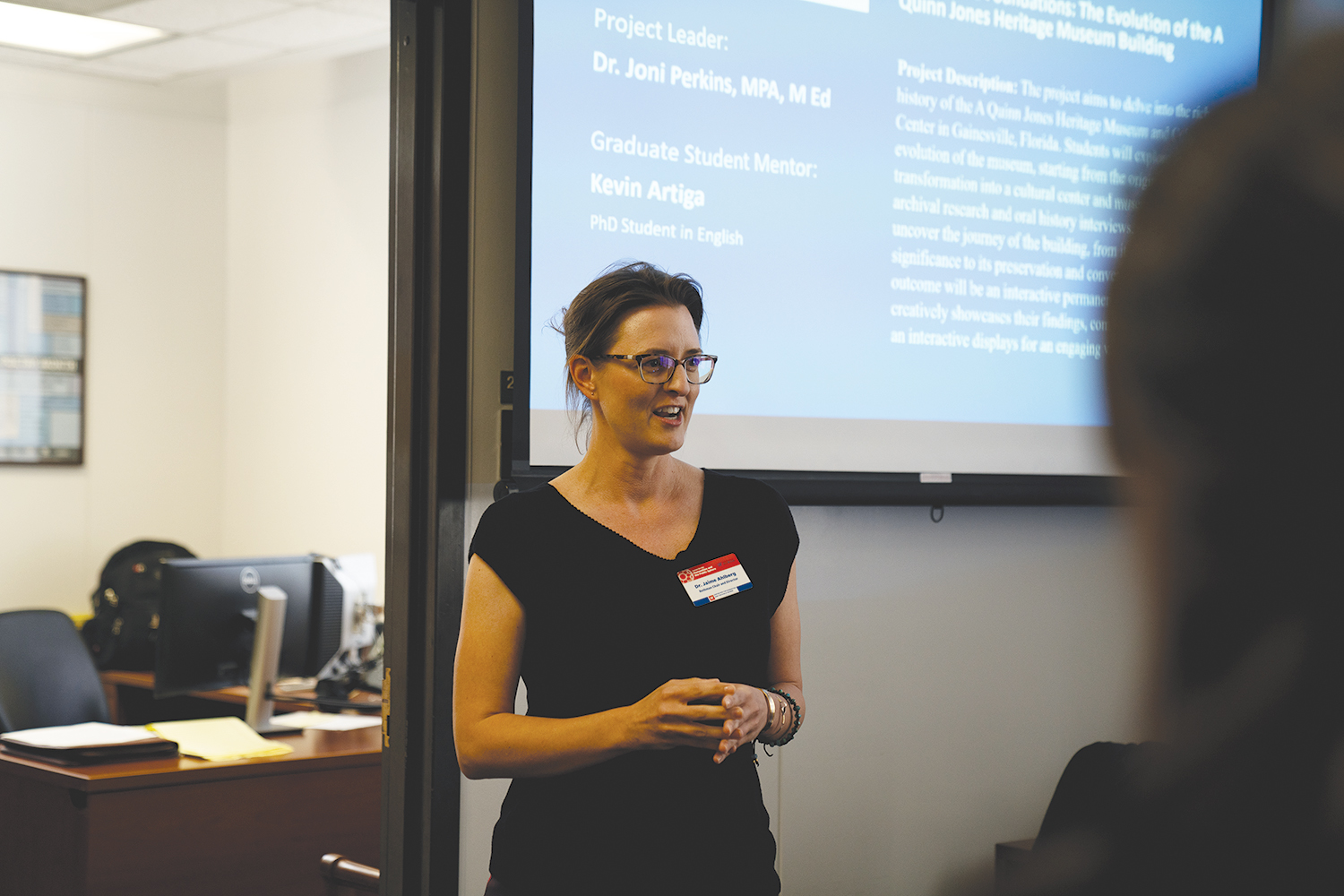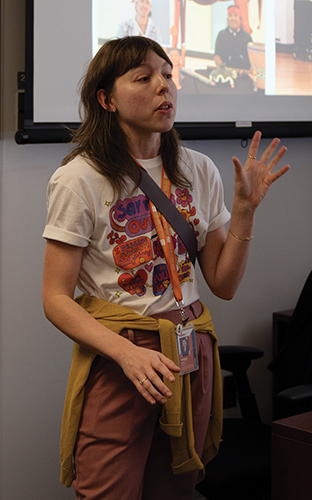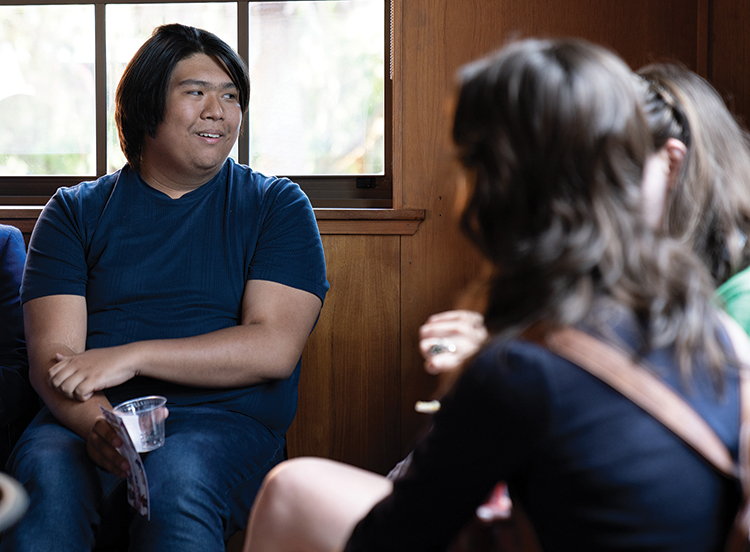
Ripple Effects: Center for Humanities and the Public Sphere broadens focus, engages new partners
Twenty undergraduates pursuing majors across a dozen departments, some outside the College of Liberal Arts and Sciences at the University of Florida, packed into the cozy Walker Hall offices of the Center for Humanities and the Public Sphere in April to learn more about the Alexander Grass Scholars Program for which they had been selected from 71 applicants.
“I want to develop a thesis at UF but I didn’t know where to start,” said RACHEL NUYTEN, a third-year student studying linguistics and Spanish. “I found this on the CHPS website and I thought it would be a great way to get some mentorship.”

For JAIME AHLBERG, director of the center, it was a new experience: the first time the center has welcomed undergraduates into the program as part of her initiative to expand the mission of humanities into the digital sphere.
“We have three big areas of focus: Supporting the research that happens on campus, providing a physical and virtual hub for the humanities, and engagement with the community where we live and work,” Ahlberg told the students, who are now spending the summer gaining tools for their specific research projects that will begin this fall. “The Grass Scholars Program brings all of this together.”

The students were divided into four groups. One group will study old almanacs in the Smathers Libraries collection to glean insights into their grandparents’ worldviews. Another will explore the lives of Black residents in Gainesville through a curated collection at the local A. Quinn Jones Museum & Cultural Center. A third will develop digital tools to make the Harn Museum of Art collection of Indigenous artworks more publicly accessible. The fourth will document quilts, donated to the Matheson History Museum as part of the Gainesville Area AIDS Project, and develop an online exhibit to showcase them.
The scholarship program was made possible thanks to a generous donation from the Alexander Grass Foundation. Grass, founder of Rite Aid Corporation, earned his law degree from UF in 1949. Before his death in 2009, he shared with the Samuel Proctor Oral Histories Program that the humanities courses he completed while at UF sparked an interest in the arts that continued throughout his life.

TRISTAN KRAMMEL, a second-year student majoring in English with a minor in Education Studies, applied to become one of the inaugural Grass Scholars to gain new tools to further his education.
“I appreciate how holistic it is. I’m constantly thinking about research ideas. It’s a great opportunity to have that available to me,” Krammel said.
Prior to joining the center as director last August, Ahlberg served for several years on its advisory board while on faculty in the Department of Philosophy, teaching ethics courses to both undergraduate and graduate students. The prospect of supporting the work of faculty, students, and community members motivated her to take on the new role.
“I really like the idea of having broad impact outside my discipline, and I also enjoy the public-facing impact of working with the surrounding community,” she said.
With support from the college, she is growing the center’s staff, mission, and physical presence. Strategic funding from the state Legislature, awarded in a competitive process initiated by UF President Ben Sasse, will be used to establish the Digital Humanities Lab.
“This lab will allow UF to showcase our research in a new way and help Floridians engage more with our work,” Sasse said. “We want this space to give our students more valuable experiential learning opportunities, as they gain the critical skills they need.”
The lab will extend the insights of humanities into STEM fields while bringing scientific and analytical tools into humanistic disciplines.
“It will be a physical and virtual hub for exploring humanistic perspectives on – and in – digital spaces,” Ahlberg said.
As the spring semester concluded, she was working to hire a new communications manager and an assistant director of digital humanities and undergraduate learning. She also awaits news about the center’s relocation to accommodate its expansion.
“Digital humanities offer an opportunity to make our work accessible to different audiences. For instance, data might show a new way of thinking about the human cost of conflict,” Ahlberg said. “We’re amplifying those questions.”
She hopes to have the center established before the end of the year. “We are working to take inventory of our human capital along with equipment and space that’s already available,” she said.
One idea on the table is creating a faculty writing group where scholars from different disciplines can come together to overcome barriers to writing journal articles or books related to their research.
Ahlberg, along with center’s faculty and staff, believes that humanities work can enrich all academic disciplines.
“It’s been invigorating, not just for me, but for the whole team,” she said.


